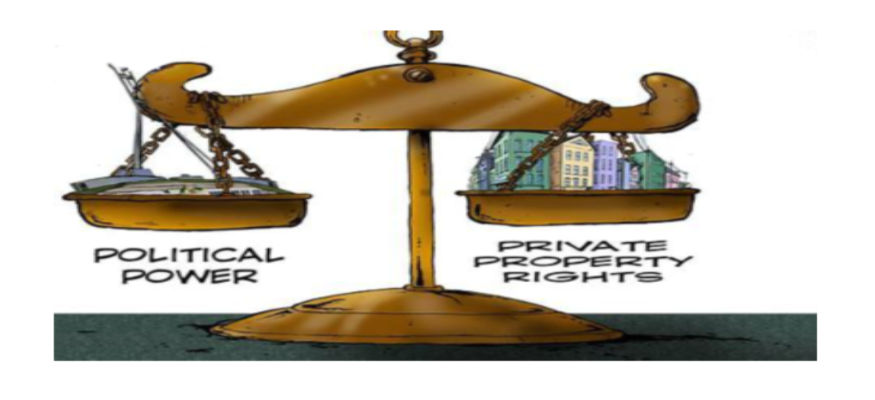What do these things have in common?
- The federal government uses a pandemic emergency to place a moratorium on rent – because paying rent apparently helps a virus spread.
- The federal government seizes millions of dollars from safe deposit boxes using civil asset forfeiture – because anyone who has that kind of loot must be a criminal.
- The federal government uses the Antiquities Act to designate millions of acres a “national monument” – by labeling the land to be “antique.”
- The federal government designates private ponds to be “waterways” – because they contain water.
These are all instances of the federal government using laws and regulations in ways never intended, to attack our property rights. They are examples of federal government overreach. If not seizing private property outright, the government is telling private citizens how they may use what they own.
Do you have rights to graze cattle? Uncle Sam can upend that at any time.
Do you need a pond to water your livestock? The EPA would like to have a word with you.
Do you support your family with rental properties? You’d better save up. The next flu season, and rent moratorium, is right around the corner.
But don’t save too much. Your property has no civil rights and can be seized, even when no crime is alleged. Of course you can get it back by challenging the seizure in court – it will only take a few years.
Be careful about putting savings into an investment account too. The federal government has given account managers permission to violate their fiduciary duty to investors by making ESG (environmental, social, and governance) investments – with your money.
The federal government has clearly gone astray. What can be done? It turns out, a lot – if the states work together. The second clause of Article V of the Constitution gives the states the means to change how the federal government operates. Via a convention of states, we can impose guardrails on the federal government.
In 2023, a simulated convention of states was conducted to demonstrate how the process would likely play out. Commissioners from 49 states attended. The commissioners were not shills from the Convention of States Action movement. They were mostly state legislators, selected from amongst our neighbors. In other words, they were an accurate reflection of those who would likely be selected for an official Article V convention.
Their deliberations were serious, and they put forward a number of proposals; consistent with their commission to address term limits, fiscal constraints, and government overreach. Had it been an actual rather than simulated convention, their proposals would go to the states for ratification. Thirty-eight states would need to approve any proposal for it to become an amendment to the Constitution.
The commissioners at the simulated convention of states, proposed an amendment that would allow a simple majority of states to abrogate any statute, decree, order, regulation, rule, opinion, or other action originating from the legislative or executive branches (past, present, or future). That would be the “They can pass it, but they can’t keep it unless we agree” amendment.
Were such an amendment to be ratified, a mere 26 states could
- Overturn the Antiquities Act,
- Terminate civil asset forfeiture,
- Limit emergency powers, and
- Clarify that a waterway is a way to move cargo by water.
That’s just a few examples of what states could do.
The President has the power to veto acts of Congress, but nobody has veto power over the executive branch – currently. An Article V convention of states could return power to the states, giving them the ability to veto executive and legislative acts. The states would be able to arrest the insanity emanating from Washington, and stop the continually growing influence of the bureaucratic state in our private affairs.
If you would like to be counted among the Idahoans standing with Convention of States Action to protect our property rights, visit www.conventionofstates.com/idaho to sign the petition and see volunteer opportunities.






